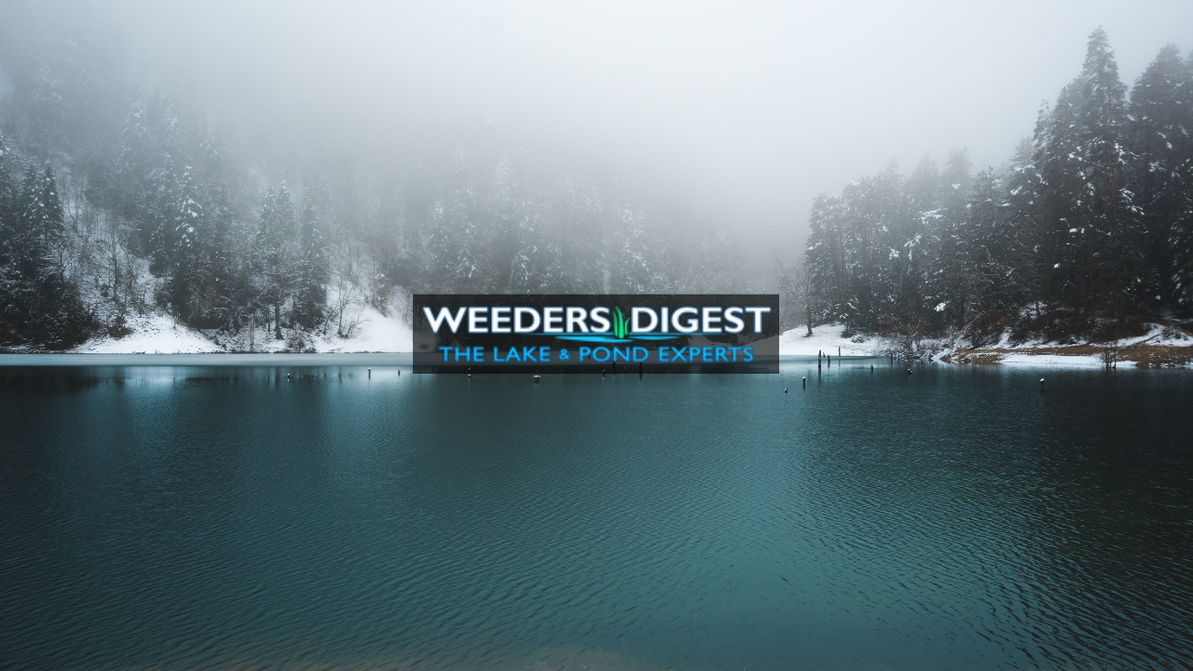Muck Reduction Treatments That Still Work in Cold Water
Understanding Fall and Winter Muck Buildup
As water temperatures begin to drop, many pond and lake owners assume muck treatments stop working once the weather cools. In reality, muck continues to accumulate throughout fall and early winter, especially in areas where leaves, decaying weeds, and organic debris settle at the bottom.
When left untreated, this buildup can lead to poor water clarity, strong odors, and reduced oxygen levels by spring. The key to keeping your pond and lake clean and healthy during this time is choosing a treatment that remains effective in cold-water conditions, typically around 34 to 60 degrees Fahrenheit.
Why Cold Water Muck Control Is Different
In warmer months, beneficial bacteria and enzymes actively break down organic waste on the pond bottom. But as water cools, most bacteria slow down and lose efficiency. This is where cold-water specific muck reducers make a difference as they contain strains of bacteria formulated to remain active even in low water temperatures.
These treatments continue digesting organic material late into the season, helping to minimize sludge buildup and prevent the release of gases trapped under ice during winter. By treating your pond or lake before it freezes, you create a cleaner, healthier foundation that pays off when temperatures rise again in spring.
Then, as soon as the ice melts, you can begin treating it again giving your waterfront a head start toward a clearer, fresher, and more enjoyable season ahead.
Our Top Pick: Cold Water Muck Reducer Tablets
Cold Water Muck Reducer Tablets are engineered to perform when other treatments slow down or stop working all together. Each tablet delivers a high concentration of cold-tolerant beneficial bacteria that settle directly into the muck layer where they are needed most.
These tablets are ideal for use in late fall and early spring, when water temperatures fall between 34°F and 60°F. They continue to break down organic buildup even under challenging conditions, reducing muck thickness and improving water clarity without chemicals.
Regular application helps:
• Reduce existing muck and sludge buildup
• Improve water clarity and reduce odor
• Support a balanced pond ecosystem through the transition to winter
• Limit nutrient overload that fuels spring algae growth
Tablets vs. Pellets: Which Works Better in Cold Water?
Both muck tablets and muck pellets effectively target bottom buildup, but their performance differs based on formulation and application.
Muck tablets are generally considered superior because of their larger size and higher probiotic content, which allows them to deliver a stronger, longer-lasting dose of beneficial bacteria directly into the muck layer. This makes them especially effective in cold water conditions, where bacterial activity naturally slows down.
Pellets are denser and sink quickly to specific areas such as shorelines, docks, or shallow coves making them ideal for targeted treatments. However, tablets typically outperform pellets overall by maintaining steady decomposition activity throughout the pond, even during cooler months.
Aeration + Muck Reduction = Best Results
While muck reducers can work independently, aeration enhances their effectiveness, especially in cool water. Oxygen helps bacteria thrive and speeds up decomposition, making late-season aeration one of the best ways to boost treatment results.
Even gentle surface movement from an AquaThruster™ or a diffused aerator supports more efficient breakdown and prevents gas buildup under the ice.
Common Questions About Cold Water Muck Treatment
Q: Do muck treatments actually work when the water is cold?
Yes. Cold-water formulations like our Cold Water Muck Reducer Tablets are designed to remain active at low temperatures, continuing to digest organic waste long after standard treatments slow down or stop working all together
Q: How late in the season can I apply muck reducers?
You can continue treatment until the water begins to freeze. For most northern climates, this is typically late October through mid-November. Applying one final dose before freeze-up ensures steady decomposition over winter.
Q: Can I use muck reducers under the ice?
While bacteria activity slows significantly under solid ice, a late-fall application remains effective as long as water temps are between 34°- 60° F.
Preparing for a Cleaner Spring
Applying a cold-water muck treatment before your pond or lake freezes is one of the simplest and most effective ways to maintain long-term water quality. Products like the Cold Water Muck Reducer Tablets keep beneficial bacteria active in cool conditions, helping to reduce sludge, limit odors, and support a balanced ecosystem through winter.
As temperatures rise again in spring and the water consistently reaches 60 degrees or warmer, it’s the perfect time to switch to a warm-water formula like ShoreTech Muck Tablets. These tablets are designed to accelerate decomposition during the active months, keeping your pond clear and healthy all summer long.
By using both treatments seasonally, you can maintain year-round muck control and ensure your water stays clean, balanced, and ready for every season.
Recent Posts
-
Natural Solutions for Managing Algae Blooms Before They Start
Imagine walking up to your pond or lake and instead of a clear, shimmering surface, you're greeted b …28th Jan 2026 -
Early Spring Lake Water Quality: Your Guide To A Healthy Lake
Spring Awakening: The Ultimate Guide to Early Season Lake Management The first thaw is more than jus …21st Jan 2026 -
How to Choose the Right Aeration System for Year-Round Lake and Pond Health
Imagine waking up after a long, cold winter only to find that your favorite fishing spot or the pond …14th Jan 2026





